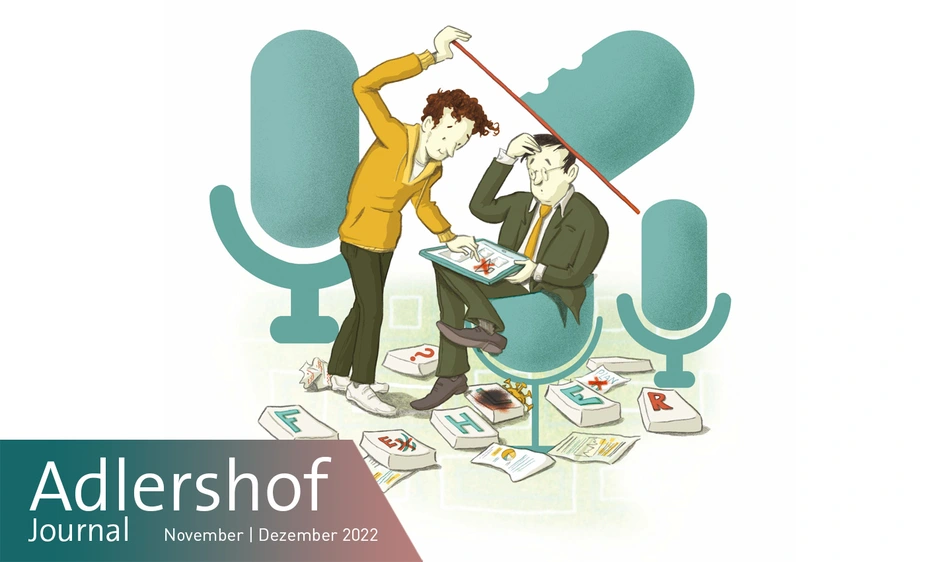You’re still on mute. How we learn from mistakes
Essay by Ralf Kemmer, Professor at SRH Berlin University of Applied Sciences, and hoster of the Fuckup Night Berlin
Until 2020, digitisation and digital transformation were top of the list of strategic initiatives at many companies. This included plans for applying new methods to teams, teaching new technologies to staff, and reducing hierarchies.
Today, in 2022, we live in a different reality. We are experiencing how unpredictable and imperfect the future is. The pandemic made long-term plans obsolete and replaced them with swift action. Companies tried reacting to regulations and employees were to adapt to the new circumstances according to the respective requirements. These developments were not predictable, and many people were torn out of structures they previously thought safe.
What have these new circumstances triggered in us? We all had to experiment and develop our flexibility. Video calls, for example, were completely new for most of us – at least to this extent. However, everybody tried their best. Initially, professionalism wasn’t quite so important. We learned how to do it – by doing it. Fear of failure or shame was not so present or quickly overcome. We tried out things or still do in some cases, the level of skill was similar for everyone, and hierarchies were irrelevant. Students showed their teachers buttons and functions, apprentices created new accounts for their superiors, and everybody now knows what “you’re still on mute” means. Everybody made mistakes. A completely unprofessional use of tools was commonplace. Failure was abundant but all that was accepted. It was like live beta testing.
We are generally irritated by such radical changes and technological innovation at work because we believe that we must be just as good, just as fast as before. Our aim is to always act professionally and flawlessly as part of our work – because that’s what we learned to do. We are afraid of making mistakes because they make us feel ashamed and because we fear that coworkers talk about us, and superiors judge us.
Over the past two years, we were coerced into action, even though we felt unsafe. We had to overcome technological obstacles, change our procedures, and develop new ones. Our work routines changed, too. Working from home, we had to organise ourselves and coordinate a family.
In transformation processes, we talk about leaving one’s comfort zone, changing routines, putting oneself in new circumstances, and, ideally, taking risks. Looking at the last two years, we were all faced with these challenges, leaving our comfort zone, and successfully managing this situation. While doing so, our perception of failure has changed. We realised that it is normal to make mistakes – for all of us. Nobody is without error, and we can support each other across hierarchies.
It’s up to us how we process all this input and what we learn from it. The period was quite short in order to properly internalise our experiences and change our attitudes. However, if we focus on the positive effects, we can actively control and continue this process towards a change in perspective. Let us give ourselves and our fellow human beings the freedom to try out, test, experiment and, through that, make mistakes. If we risk making mistakes or failures and don't judge them negatively, we have the chance to deal with changes in the future with flexibility and without fear.
Prof. Ralf Kemmer teaches marketing and communication at SRH Berlin University of Applied Sciences, has been hosting the Fuckup Night Berlin since 2014, and supports companies in establishing a positive error culture.
